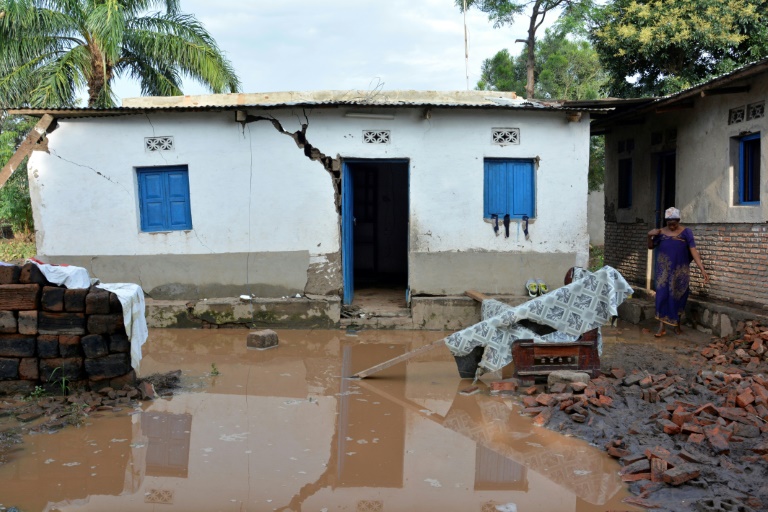Natural disasters sparked by climate change have forced more than 100,000 people to flee their homes in Burundi in recent years, British charity Save the Children said in a new report released on Monday.
It said climate shocks — not conflict — were now the main cause of internal displacement in the landlocked East African country, which has a largely rural population.
“Over 84 percent of all internally displaced people in Burundi… have been displaced due to natural disasters rather than conflict, mostly due to the rise of Lake Tanganyika, Africa’s second-largest lake,” the charity said.
Children have been particularly hard-hit, it said, adding: “An estimated 7,200 of the displaced people — or 7 percent of the total number — are babies under the age of one.”
Older children are unable to attend school, with many surviving on just one meal a day, the charity said.
Arielle, a teenager whose home was swallowed up in the middle of the night by the lake’s rising waters, told Save the Children she struggled to eke out a living, earning $1.20 (one euro) a day for carrying and stacking bricks.
“I eat most days, but some days I miss meals altogether,” the 17-year-old said.
– ‘A gross injustice’ –
Displaced farmers told the organisation that flooding disasters had intensified in recent years.
“The situation with flooding has become worse than it used to be. This time, the flood came over everything and never went back,” said Marie, a mother-of-three.
“I fear the children are going to die from hunger.”
Maggie Korde, the charity’s country director for Rwanda and Burundi, warned: “The world seems to have forgotten Burundi, and yet it’s bearing the brunt of global climate change, with children the most affected.
“We are seeing families that previously had solid homes, all children in school, and two working parents, reduced to living in tents with no employment, no food, and kids having to work for a dollar a day to support their family,” she said.
“This is a gross injustice for a community that has already experienced so much hardship.”
The report comes two years after relentless rains affected close to two million people in East Africa, and left at least 265 dead, according to an AFP tally.
The extreme weather was blamed on the sharp difference in sea surface temperature between the western and eastern areas of the Indian Ocean, with warmer waters resulting in higher evaporation and moist air flowing inwards over the continent as rain.
The waters around East Africa have been about two degrees Celsius warmer than those of the eastern Indian Ocean near Australia — an imbalance well beyond the norm.
A leaked UN climate science report, seen exclusively by AFP in June, predicts flooding will in future displace 2.7 million people in Africa annually and could contribute to 85 million being forced from their homes by 2050.









